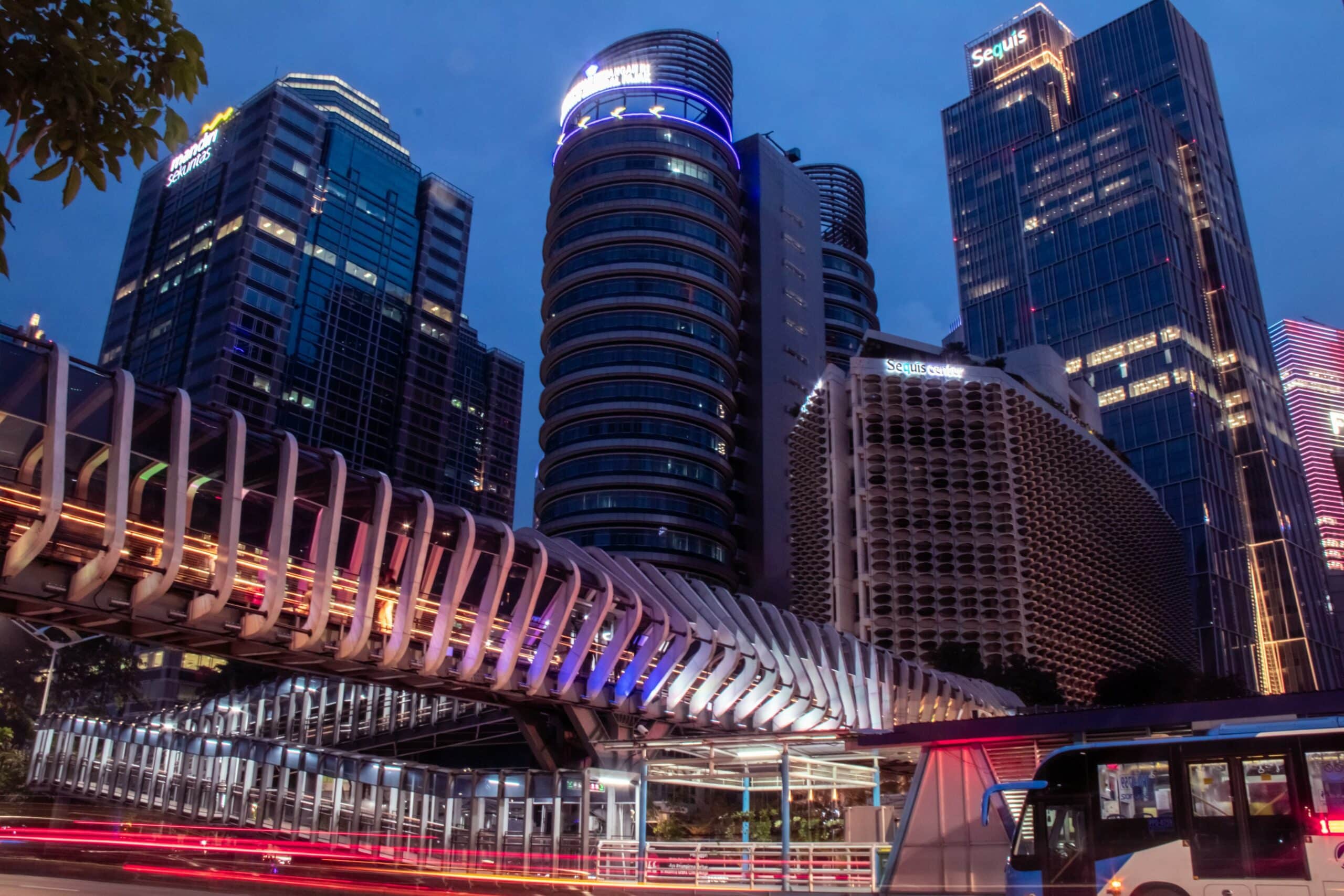The second most populous city in the world, the Indonesian capital of Jakarta is home to over 10 million people. Including the greater surroundings of Jabodetabek, that number grows to over 31 million people. The mega-city holds an unflattering record: in 2019, it was found to have the worst air pollution in the world.
That will soon change, as the government has taken steps to improve air quality and the Jakarta Transport Agency has set a goal to curb transport demand. In September 2019, the DKL Jakarta Provincial government committed to the C40’s fossil fuel-free initiative and set an ambitious goal to procure 10,051 e-buses by 2030, with over 50% fleet electrification by 2025 and full electrification by 2030[1].
Expanding Public Transportation Network with BRT
The move follows on years of significant investments in public transportation networks to overcome Jakarta’s car-oriented culture. Initially introduced in 2004, the Transjakarta Bus Rapid Transit network has expanded exponentially in recent years and now serves over 82.6 % of the city’s population. The network, which includes BRT, non-BRT, Microtrans and tourism transit saw a substantial increase in total number of routes from 2015 to 2020, growing from 29 to 248 routes across 13 corridors during this short period. The first 16 kilometers of Mass Rapid Transit were established, and the first phase of Light Rail Transit was implemented.
Combining these efforts has led to an integrated, well-connected public transportation system that provides options for most Jakarta’s residents to step out of their cars. The next step towards achieving a fossil fuel-free environment in the city — and in doing so, reducing emissions significantly; is the procurement and implementation of public transport with alternative drives.
An ambitious e-bus project is now underway, with two models of electric buses having already passed the initial trial stage to ensure the vehicle conforms to Transjakarta’s specifications. Assisted by CFF, Jakarta was able to consider financial models and gain perspective on the selection of routes and technology. Procurement has already begun, with the operator having received[2] 20 of 100 e-buses from an initial delivery to date; the e-buses are in use on both BRT routes and non-BRT routes pre-selected for the pilot program.
Creating a Model E-Bus Infrastructure with TUMI
In September 2020, Jakarta committed to participate in the TUMI E-Bus Mission as a deep dive city. The cooperation will see TUMI undertaking monitoring and evaluation during the second phase of the pilot project, assisting with upskilling the staff of Transjakarta and ensuring that procurement plan runs smoothly as the goals for 2030 approach.
TUMI will support the city in finding possible reductions to the Total Cost of Ownership (TCO) through route level modeling and schedule analysis. This analysis enables the best use of the buses as it finds the most suitable routes for their incorporation. Conditions such as driving dynamics, loading and road grade, may lead to otherwise equal e-buses having different energy consumption metrics; an optimized analysis can help experts identify the best routes for e-bus use. Such modeling also extends to the questions of where to place depots or e-charging infrastructure and what bus length is optimal for use (9 m, 12 m, or 18 m).
Not only Jakarta will benefit from this support; by building and sharing a dataset of the e-bus performance, TUMI will help to identify the project’s environmental and social impacts as well as consider the fleet’s operation performance. Through efficiency tracking, the transportation company can confirm the bus models’ energy expenditures to ensure the charging points are properly positioned. Monitoring resident usage can also verify that routes within the network meet community needs adequately. That sort of ongoing analysis will provide a better understanding of the project’s success, with replicable lessons, and work to smooth out any issues that might reveal themselves ahead of complete implementation.
The city has set itself an ambitious goal with its move towards zero emissions public transportation and this became also clear during the Jakarta E-Mobility Event series that was realized in March. Its commitment to the implementation of the e-bus as one element in its multi-pronged approach will hopefully prove an example for other mega-cities to follow.
[1] cT4ucSq6BD7VSvFnuL40km8OHWm0BapPdBnfCffH.pdf (cff-prod.s3.amazonaws.com)
[2] Transjakarta Electric Buses to Operate in 2022 (medcom.id)
